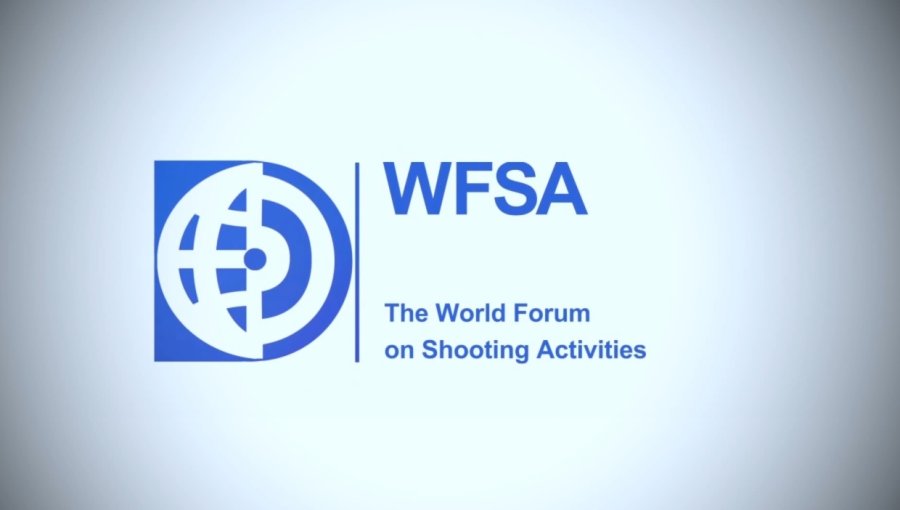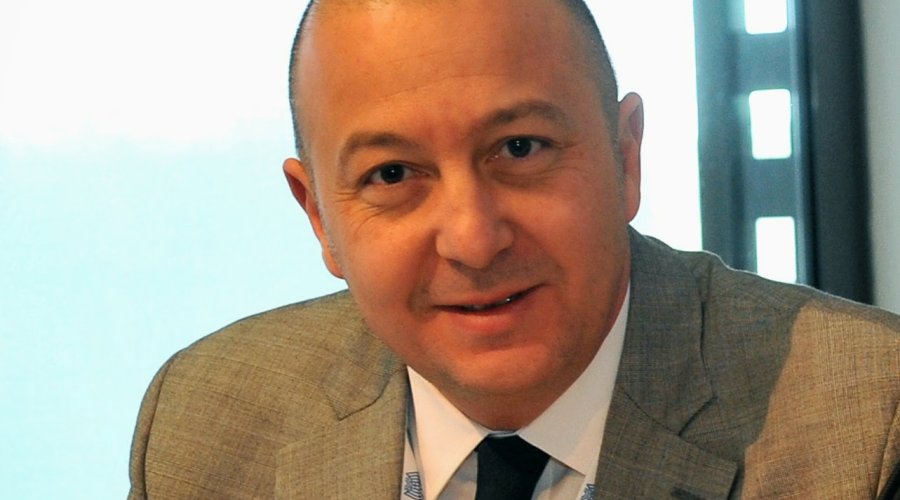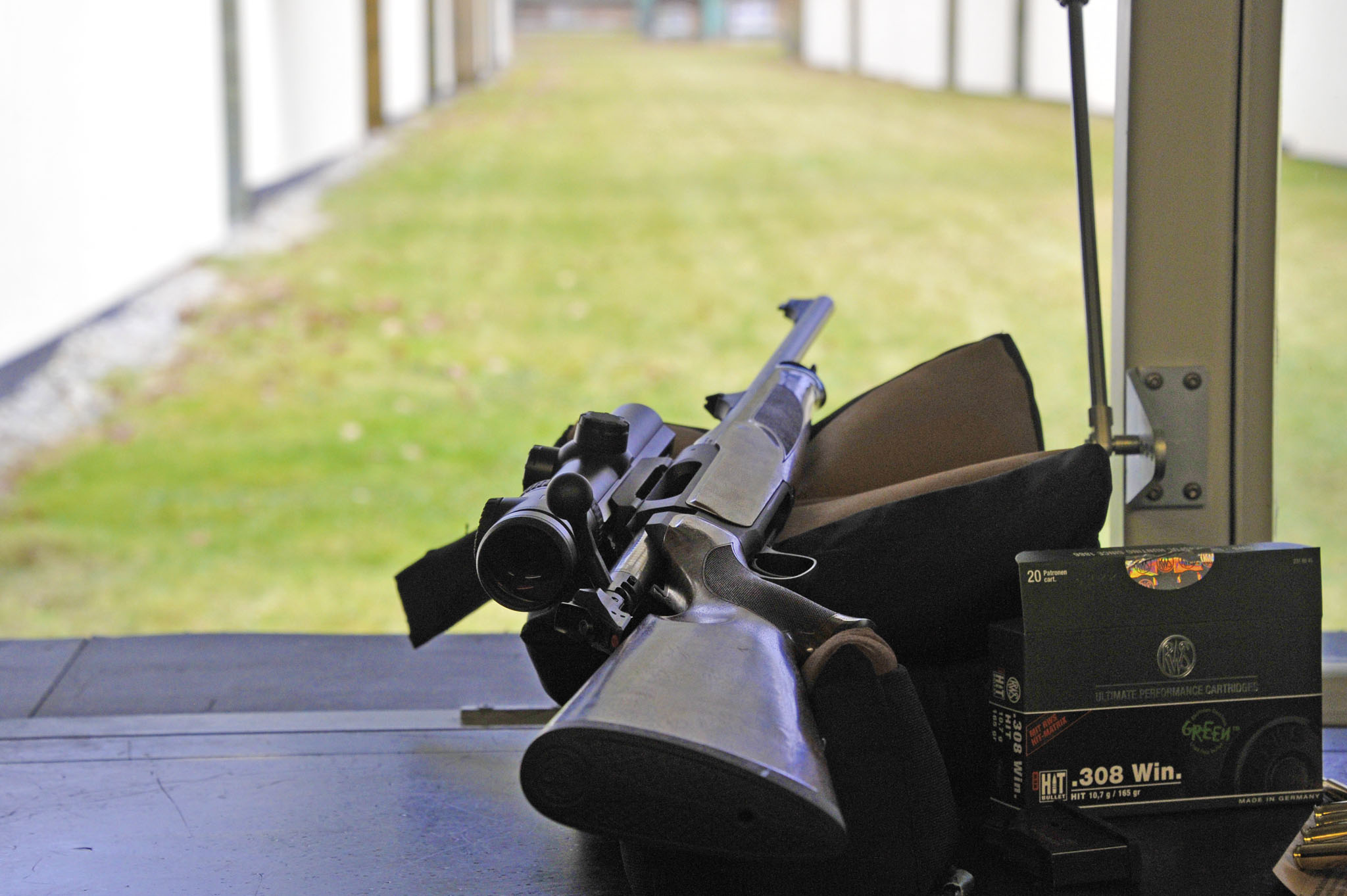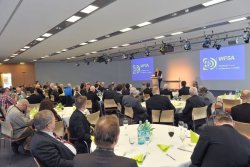
Headquartered in Brussels and Rome, the World Forum on Shooting Activities (WFSA) is an association of hunting, shooting, and industry organizations.
Founded in 1996, the WFSA has over 44 existing associations and organizations from as far apart as Switzerland and New Zealand, Sweden and South Africa. It represents over one hundred million sport shooters around the world. The WFSA and its member associations for over fifteen years have attended every major UN conference affecting hunting or sport shooting.

The WFSA is an official United Nations Non-Governmental Organization (NGO) recognized by the Economic and Social Council of the UN General Assembly. It is one of the few NGOs in the world to have been invited to speak before one of the five committees of the UN General Assembly.
WFSA holds a plenary meeting every year to brief selected invited visitors about its activities concerning the defense of hunting and sport shooting on a global scale.
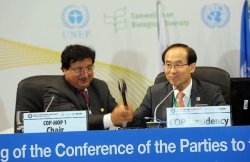
As usual, the 2015 WFSA plenary meeting was held in Germany, and more specifically at the Nuremberg fair center, on March 3rd − the day before the opening of the IWA OutdoorClassics expo.
This year, the plenum was titled "Arguing our case internationally", and indeed centered on the WFSA's activities to counter the attacks that hunting, sport shooting, civilian gun ownership, and the industry suffered at an international level under the guise of treaties, conferences and agreements that are passed as being intended to "preserve the environment" or "prevent arms trafficking and proliferation".
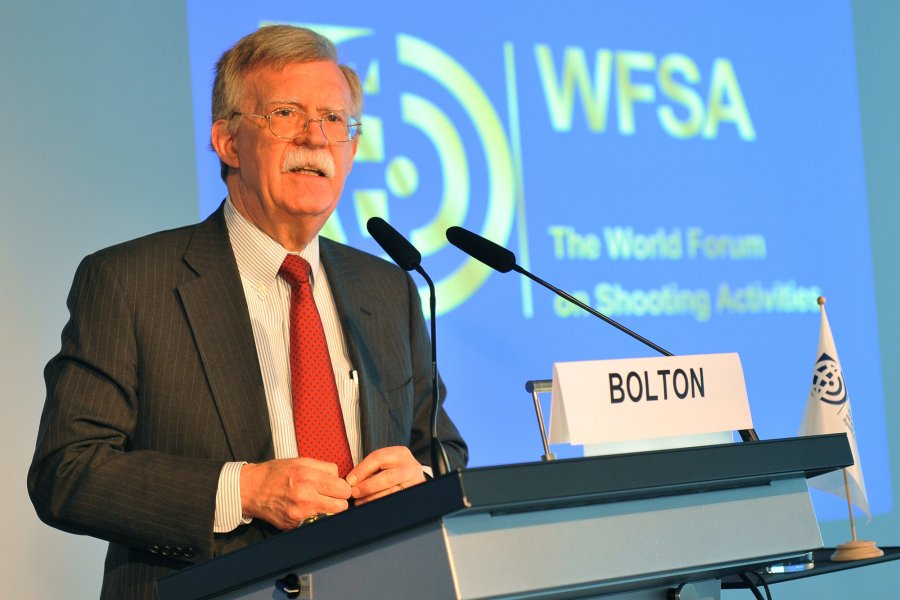
The keynote speech was held by John Bolton, an American lawyer and diplomat who has served in several Republican administrations, including a high-profile role as the U.S ambassador to the United Nations from August 2005 until December 2006.
Bolton provided an interesting explaination of the U.S. point of view − that meaning both the points of view of elected politicians in Washington and of the average American citizens! − concerning those international agreements that may negatively afflict the right of common citizens to own and use firearms.
And the America perspective is critical: with the increasing threat of terrorist action in the West, the right of law-abiding citizens to own and bear guns for protection should be held in high consideration, but on the contrary, it is under constant and relentless attack.
The United Nations Arms Trade Treaty (ATT for short) is one of the key issues under this point of view.
The treaty has been so far signed by 130 Countries and ratified by sixty-six; with some important players in the global arms trade still remaining out of it (Russia and China, namely), and the given the U.S. refusal to ratify it, it is unlikely that it will have any impact on the global trade of military weaponry, either legal or illegal.
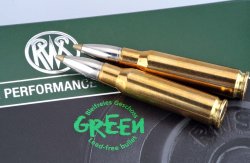
That's no wonder for those who followed closely the ATT's progress, ever since the first related talks were held in 2001: it became immediately clear how many governments and NGOs involved in the process didn't mean to focus on the global illegal trade or on the commerce of military-grade weaponry.
On the contrary they explicitly meant to use the ATT as a tool to restrict legal civilian ownership of hunting, sporting and defensive guns; back then, the Bush Administration took immediate note of this, and declared that it would have never signed, ratified nor accepted any international treaty that would violate the Constitution or the national sovereignity of the United States.
The adopted draft of the ATT is vastly different from the original drafts, but it still provides no protection to individual gun rights for common citizens; it only vaguely refers to the "legality" of the hunting, sporting, historical and collector-grade civilian guns... words pulled out of thin air, lacking clear definition and not legally binding.
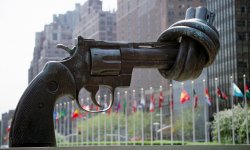
John Bolton's analysis of the ATT was brief, clear, and harsh: the ATT is vague under too many points, providing at the same time too much room to the interpretation of certain clauses that may be used by some governments to enact strict gun control regulations, or may dub as a tool to force gun control into effect in those Countries that have rejected it so far on cultural and constitutional grounds − this being the case for the United States of America.
Talks for the implementation of the Arms Trade Treaty will be held in the months and years to come, and concerns over how they could be used to impose harsh restrictions to the international civilian guns market are more than legitimate. Said restrictions may become so severe to become unbearable even in gun-controlled Europe... not to mention in the United States of America, which historically find any concept of limitation or "sharing" of national sovereignity, and all restrictions to individual gun rights, totally unacceptable.
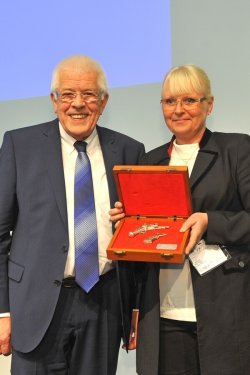
Remarkably, the World Forum on Shooting Activities granted the "Dr. Vito Genco Shooting Ambassador Award" to a woman for the second time in a row.
After Theresa Vail, appointed in 2014, this year the award − which WFSA dedicates every year to a personality that achieved outstanding results in the promotion and defense of hunting and shooting sports − was granted to Véronique Mathieu-Houillon: a French member of the European Parliament for the UMP party from 1999 to 2014, Véronique Mathieu-Houillon spent most of its term on the frontline in the protection of hunters, sport shooters, gun collectors, gun owners at large, and the civilian arms industry against the EU's gun grabbing attempts and the anti-gun propaganda of several lobbies and NGOs.
An active hunter ever since 1962, Véronique Mathieu-Houillon is well aware that the activities of anti-gun and anti-hunting groups represent a clear and present danger; she declared nonetheless to be optimistic concerning the future of hunting and shooting sports, as advocacy groups are "learning the American lessons" concering coordinated efforts aimed to demonstrate how shooting sports are legitimate, orderly, healthy and safe activities that are, either directly or indirectly, responsible for less yearly deaths than mountain sports and for less violence than soccer.
Following the award presentation Mauro Silvis − WFSA secretary for Europe − related on the events concerning the CMS/COP11, or the eleventh meeting of the Conference of the Parties to the Convention on the Conservation of Migratory Species of Wild Animals, which took place on November 2014 in Quito (Ecuador).
As early as in May 2014, WFSA was notified that the UNEP/CMS “Minimising poisoning working group” would ask for "urgent measures" to be adopted concerning a total global ban on lead-based hunting ammunition.
In the following months, organizations such as the WFSA itself, the AFEMS, the IEACS and the SAAMI put up the pressure on the European Union in terms of lobbying, and intervened at the CMS/COP11 conference to relate what kind of consequences would such "urgent measures" have on the industry: a total ban on lead-based hunting ammunition in Europe alone would cause the loss of 150'000 jobs in the sole twenty-seven EU Countries.
The WFSA's lobbying led to a crack in the otherwise compact pro-ban front, leading to a lack of consent for said all-out ban of lead-based hunting ammunition, and even pushing the German and Italian governments to show a higher level of "availability" to review current restrictions.
The presence of WFSA and other representants on "our side" was generally not welcome by the vast majority of other participants, mostly consisting in anti-gun and anti-hunting lobbying groups; nonetheless, WFSA managed to have the first article of the final resolution of the CMS/COP11 conference modified, mandating participating governments and other interesting parties to bring evidence to support and evaluate any possible claim regarding toxicity of lead-based hunting ammunition − claims which nowadays mostly come from anti-gun and anti-hunting organizations and are based on confused, uncertain data that is not officially supported by any governmental entity, even more so that high-rank politicians, both in Europe and elsewhere, seem to be totally unaware of the actions that are being taken against lead ammunition, since the matter is generally managed single-handedly by mid-level bureaucrats.
The anti-ban front (our side!) achieved a great result in Europe under this point of view, last February: Norway, a Country that totally banned the use of lead-based ammunition in all hunting specialties years ago, reverted the ban for all hunting except waterfowling. This reminds us that victories can be obtained if vigilance and cooperation is kept high!
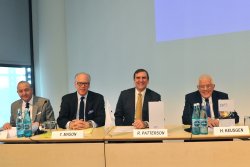
Richard Patterson − the executive director of the Sporting Arms and Ammunition Manufacturers' Institute (SAAMI) − was even more explicit when discussing legislations related to lead-based hunting ammunition, which may be changed on national and international levels, surreptitiously, to achieve total bans that may see huge anti-gun groups operating behind the curtains, using ammo bans to curtail the circulation of legally-owned civilian firearms. The consequences may be devastating: what would happen to the environment, if we were forced to look for alternative materials? What would happen to the industry?
Luckily enough, not all lead-based ammunition ban proposals are taken into considerations, because when it happens, consequences are usually severe: after several U.S. jurisdictions enacted lead-based hunting ammo bans, following a nationwide ban on lead-based ammunition for waterfowling in 1991, 15% of hunters just stopped hunting forever, while the California lead hunting ammo ban led to a 71% decrease of active hunters.
Said ban was enacted under pressures from anti-hunting groups, exploiting an interpretation of the 1940 Bald Eagle Protection Act; these groups achieved their goals by stating that bald eagles could fall victims to lead poisoning by absorbing the lead coming from hunting ammunition when it enters the food chain. Following scientific studies, however, found no evidence to support these claims − not for bald eagles, nor for Californian condors, nor even for human beings.
Yes, you read it right: there is no scientific evidence to support the claim that the use of lead-based hunting ammunition may lead to the development of dangerously higher concentrations of lead in humans, either directly or indirectly. As a matter of fact, studies on American hunters that still routinely use lead-based ammunition and eat the venison killed with such ammunition demonstrate how the lead concentration of lead in their blood is literally half of the national average, while on the other hands, vegans are the category with higher (and more dangerous) concentration of lead in their blood!
It's thus adamantly clear how supporters lead-based hunting ammunition ban have a hidden agenda: the ban on lead-based ammunition could act as a launching pad for a total ban on hunting, and later for a total ban on civilian gun ownership at large.
Richard Patterson's statement concerning the groups that support those bans is quite indicative: « Discussing wildlife management with animal rights groups is like discussing religious freedom with ISIS.»
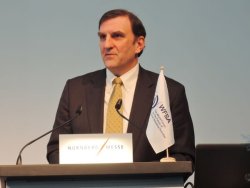
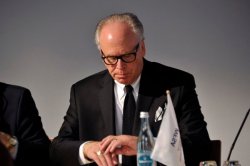
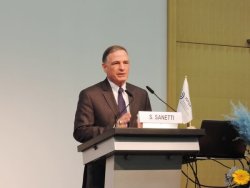
Thomas Mason, WFSA secretary for Americas, provided an unsettling insight concerning several documents (about seven drafts) currently being working at in the U.N., which may represent a threat to individual gun rights all throughout the world.
The next "Conference of State Parties” will be held in Mexico next summer to evaluate the implementation of the previously mentioned ATT; there is thus a high degree of risk that these talks could lead to a restrictive interpretation of many of its most vague clauses.
The biennal meetings “United Nation Program of Action” − basically the U.N.'s international gun control program − are even more dangerous. One of its most clear and present threats is the “Marking and Tracing Instrument”, aimed to impose the serial marking of all gun components, making guns incredibly expensive on the legal markets and making the gunmakers' lives and legitimate activities exponentially more complicated.
Another U.N. initiative, the ISACS ("International Small Arms Control Standards"), is aimed at imposing standards on gun control that should be adopted by all Countries that will adhere to the ATT. Several of its modules concerning civilian gun ownership include licensing, legal age limits, bans on certain types of firearms and magazines, custody and ownership limits and duties, and much more – unacceptable interferences in domestic legislations that each Country should be able to rule about by itself.
The U.N. also seems to be aiming at the use of instruments such as the UNITAG to widen its control over the commerce of ammunition (mainly civilian) as a way to curtail the trade and use of firearms between law-abiding citizens.
And even more: the “Register of Conventional Arms” seems to be aimed at imposing all UN-member Countries to create centralized registers of all military armaments in their arsenals and of all civilian firearms on their soil, while UNODA (the "United Nation Office of Disarmament Affairs") recently adopted a resolution that would aim at imposint international standards for "End-User Certificates" concerning every single sale of every single firearm or component thereof.
The idea of tracing every single civilian and military gun available everywhere in the world is a pure pie in the sky, particularly since the 2001 Firearms Protocol explicitly excludes the People's Republic of China from the list of Countries that must serialize all firearms, civilian and military, they manufacture!
The matter is vast and controversial, to say the least, and attempts at a global civilian disarmament will probably continue forever, but Tom Mason wanted us all to rest assured that WFSA and its international partners will continue to monitor the gun grabbers' activities and to act in defense of the industry and the gun owners.

So, is there an effective way to protect our rights and interests? In his "Call to Action" at the end of the meeting, Steve Sanetti − President and CEO of the National Shooting Sports Foundation of the United States (NSSF) − definitely said YES.
The world of gun owners, hunters and shooters is generally frowned upon and mistrusted by the so-called "public opinion", but most of said mistrust is due to the lack of knowledge concerning our activities.
The national and international pro-gun lobbies, from WFSA onward, should thus engage an adequate level of energies and economic resources to counter disinformation with facts. As hard as it could be, we need to make public opinion understand how legally owned firearms and ammunition are not a danger for the environment (the population of endangered animal species is rising even in those Countries where hunting is more widely practiced), nor they are a threat to public safety or national security (crime has been sharply falling in those Countries where legal civilian gun ownership is more widely spread).
Our future can not depend on a "static defense": we can not just always counter-attack, we need to be proactive in spreading pro-gun facts in a convincing way; we need to stop refusing new ideas, which should rather be accepted and implemented; and above all, we need to provide the public opinion with an image of hunters, sport shooters and gun owners that's realistic and true to their nature, to counter the distorted, demonized image provides by the Mass-Media for the sake and the interests of the anti-gun lobbies.
